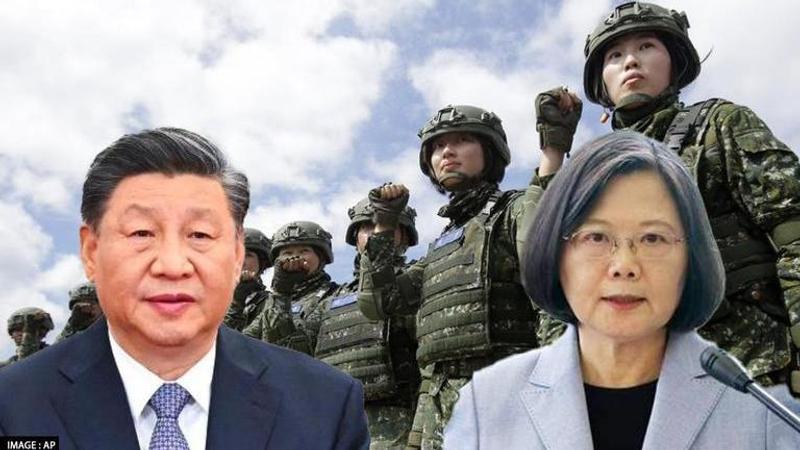Published 13:46 IST, December 8th 2022
Taiwan considering extending its military service amid escalating tensions with China
Taiwan's defence minister Chiu Kuo-cheng has said that Taiwan is considering extending its military service from 4 months to 1 year, due to concerns about China

Taiwan's defence minister Chiu Kuo-cheng has said that Taiwan is considering extending its military service from 4 months to 1 year. The rationale behind this, according to the Taiwanese defence minister, is enhancing Taiwan's defence capability. The 4-month conscription was introduced in 2013, which is a time when the situation between Taiwan and China was not as tense as it is now.
"The military's thinking is very straightforward," said Chiu as per Newsweek. "How do we increase our military capabilities and enhance our training? Those are the considerations. Protecting our country is everybody's shared responsibility."
If the decision is finalised before the end of this year, then it could be implemented by 2024 but if the decision is not finalised before the end of this year, then it will be implemented by 2025. Taiwanese President Tsai Ing-wen's and her cabinet might finalise the decision by December 22nd. Concerns about China's invasions have always been present in the minds of Taiwanese. Tsai came into power in 2016 and since that time, many people have been urging her to extend the conscription from 4 months to 1 year. The Russian invasion of Ukraine heightened the sense of concern in Taiwan.
Challenges Taiwan faces
Taiwan faces multiple challenges in defending itself against China. While the United States has historically been Taiwan's main ally, it is unclear how the US would respond to a Chinese attack on Taiwan. The US has strong economic ties with China, and may be hesitant to become involved in a military conflict with China. Even if the US succeeds in decoupling its economy from China, sending boots on the ground for defending another nation will be politically challenging. It is important to flag that Taiwan is critical to the US' national interest. It is a part of the 1st chain of islands, which play a crucial role in preventing China from becoming a regional hegemon in East Asia.
East Asia is an incredibly important region geopolitically for a number of reasons. First and foremost, it is home to some of the world's largest and most powerful economies, including China, Japan, and South Korea. This makes it a key driver of global economic activity, and any significant developments in the region are likely to have far-reaching consequences. Additionally, the region is home to a number of important trade routes, including the Strait of Malacca, which is one of the busiest shipping lanes in the world. This makes it a critical hub for global trade and commerce.
Another major challenge for Taiwan would be the significant technological and military advantage that China holds. China has invested heavily in its military over the past several decades, and now boasts a modern and well-equipped armed forces. In contrast, Taiwan's military capabilities are relatively limited, and it would be hard-pressed to match China's military might. Even with the complete support of the US, with American troops on the ground being backed by the US military industrial complex, Taiwan might struggle as wars are determined by the industrial output and manufacturing prowess of a nation/alliance. China's manufacturing sector will be able to churn out more arms and ammunition compared to the manufacturing sector of other nations, simply due to the size and depth of China's manufacturing sector.
Additionally, Taiwan's geography would pose a significant challenge in the event of a war with China. Taiwan is a small island located off the coast of mainland China, making it vulnerable to attack from the sea. China could easily block Taiwan's ports and cut off its supply lines, making it difficult for Taipei to defend itself and to maintain its military capabilities. War over Taiwan, is extremely unlikely, as it would escalate into something much more, although senior US officials remain concerned about the possibility.
Updated 14:57 IST, December 8th 2022




